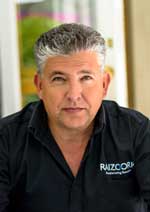Apple was born in a garage in 1976 as a modest entrepreneurial venture started by Steve Jobs. The road that Steve had travelled from those humble beginnings to creating the wealthiest company in the world can teach entrepreneurs a great deal about what it takes to succeed. I’d like to share the top ten lessons I have learned from Steve’s entrepreneurial journey.
1. Success starts and ends with perseverance
Steve Jobs succeeded because he persevered in the face of many failures. He seemed to have an irreverence towards failure; he understood that it was part of the journey and it would just spur him on to new ideas. One example is how he bounced back after being fired from Apple in 1985; within a few months he had founded Pixar and then NeXT (which also failed). “I’m convinced that about half of what separates the successful entrepreneurs from the non-successful ones is pure perseverance,” Steve said in an interview in 1995.
2. Once the founder, always the salesperson
Steve Jobs held the key sales position at Apple right to the end. YouTube has countless clips of him selling to a wide variety of audiences. His legendary Macworld keynote presentations look easy and off the cuff, but in fact each presentation was a carefully planned sales pitch. Not ever in Steve’s 23 years with Apple did he abdicate responsibility for driving sales.
3. Create your own markets
Steve Jobs ignored the maxim of giving the market what it wants. He was impudent about market research findings and would say, “The consumer doesn’t know what he or she wants until we make it.” He would create something so sexy and different that it would be irresistible, and then tell the market this is what it wanted. For instance, when the market was comfortably settled with the MP3 player, Jobs introduced the iconic iPod and revolutionised market demand.
4. Settle new markets
Steve Jobs was not always a pioneer in product development, but he had a visionary instinct for what would work in the market. Many of his products were not his idea but rather ones he’d seen elsewhere. Steve’s particular genius was that he was able to refine such ideas and turn them into market leaders. A famous example is the iPad. Its predecessor was the GridPad, created in 1989, one of up to ten tablets that didn’t make it. Steve took the concept and differentiated it to such an extent that he was able to settle the market for it.
5. Excellence in execution
For Steve Jobs, execution was everything. Apple was built on the creed of excellence in every detail of execution, from production to supply chains, to channels to market, to marketing itself. It was a level of excellence that made it much better than its competitors. Steve once said, “Be a yardstick of quality. Some people aren’t used to an environment where excellence is expected.”
6. Attention to detail
For Steve Jobs, every peripheral of design as well as functionality was important. He believed that the back of a gadget should look as good as the front, and is famously said to have expected the internal design to be exquisite as well. When asked why, his answer was, “Other engineers will see.” Steve attributed his passion for detail to his father who told him it was important to craft the backs of fences and cabinets even though they would never be seen.
7. Charisma counts
Steve Jobs showed us just how important charismatic leadership is in getting buy-in from the market. Apple was never quite the same under John Scully; it missed Steve’s flair. In the end, it took Steve’s return in 1997 to turn the company around. From that point onwards, Apple soared to the top and in 2010 it was declared the world’s biggest company. Steve’s charisma largely shaped the Apple brand and was responsible for its cult following.
8. Simplicity sells
All the Apple products are easy to use because Steve Jobs resisted complexity. For him, ease of use came first. There is a simplicity of use and a minimalist aesthetic about each product that distinguishes Apple products from all its competitors. Jobs knew that in this complex high-tech world people want simplicity and are willing to pay more for it. His marketing messages emphasised this, showing a world where life is easy and manageable with his products.
9. Take a variety of routes to market
Steve Jobs did not feel pressured by mainstream market trends. He embraced every marketing opportunity and tried every route, from the conventional to the cutting edge. It seems that he favoured a spaghetti sticking to the roof approach, throwing it all up and seeing how much of it he could get to stick. His marketing success came because he had a clear story to tell and he told it in any way that would create a seductive customer experience. He also ignored market analytics; instead he followed his intuition about where and how to tell the story about Apple.
10. Surround yourself with the best

Steve Jobs was famous for surrounding himself with talent. He strategically identified the people he wanted to have on his team and personally wooed them. Steve was determined to have the very best people to support him. One such recruit was Tim Cook, who took over as CEO after Steve retired; Tim was the numbers man who was originally hired as the COO. Steve did not believe that he himself could do it all on his own, and the result is that he left Apple the legacy of an exceptional team of people to lead the company into the future.






